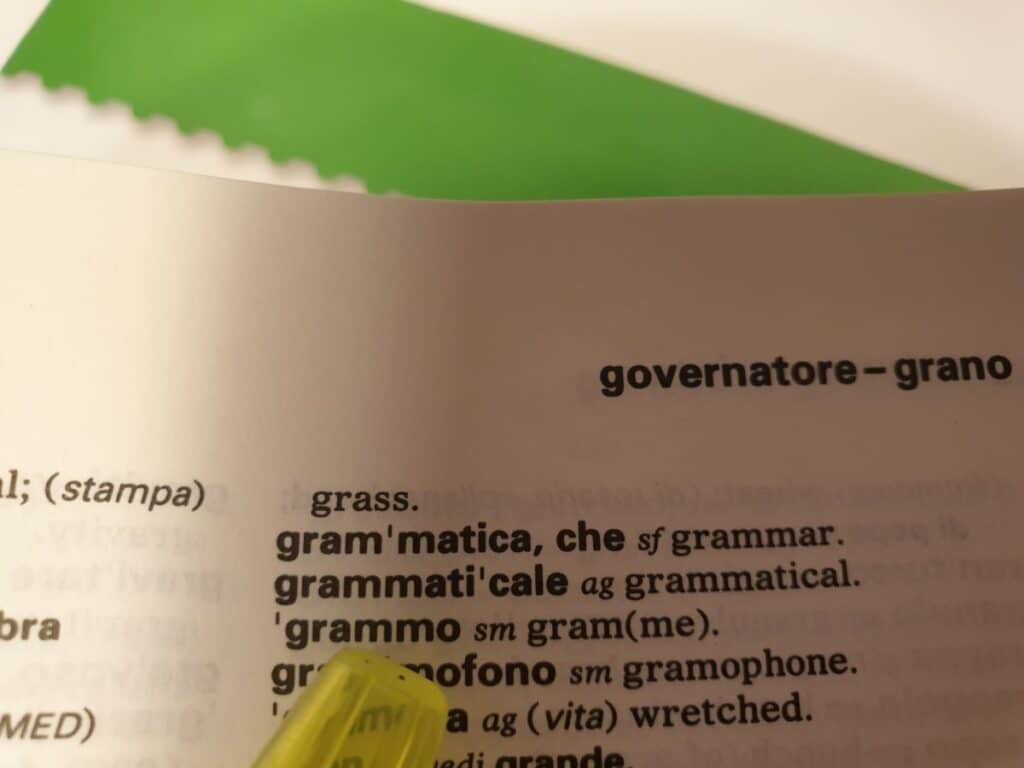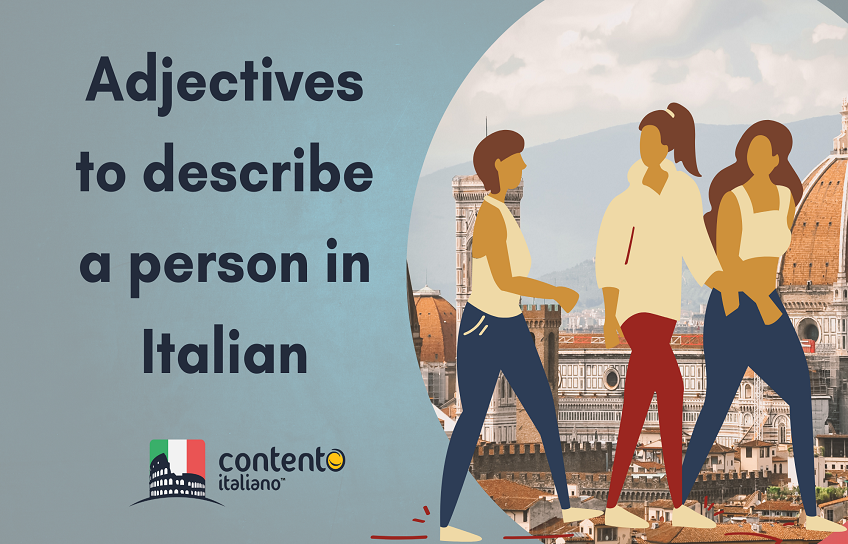Is it useful to learn Italian?
Learning Italian is useful for a number of reasons, including opportunities to use Italian, benefits to your personal development and health, giving you the ability to go on holiday and even move to Italy for work or retirement and opening up your cultural horizons.
In this article I will discuss six reasons why you should learn Italian.
Keep reading to find out more.
1. Italian is easy to learn
Italian is a relatively easy language to learn, especially at a beginner and intermediate level.
With Italian, you can progress your learning to a level that allows you to have a conversation with someone without delving into the more complex aspects of grammar.
Italian is an easier language to learn than other Romance languages such as French, Spanish and Portuguese, and easier than the Germanic languages, such as German, Duch, Norwegian and others which can have complex features, such as cases in German.
2. Italian is easy to practise and there are plenty of opportunities to use it
When you are in Italy you will get a chance to practise your Italian
Italians are not great at speaking other languages, particularly in non-touristy areas and smaller cities and towns.
After moving to the UK I noticed this even more whenever I returned to Italy on holiday. Very few people speak English in the smaller towns.
As a learner of Italian, this means that when you visit Italy you will have plenty of opportunities to practise your Italian, especially if you visit somewhere which is not excessively touristy.
I have heard many students of Italian comment on how nice it is when they go to Italy and they get to put into practice what they have learned and have conversations with the local people. You will feel that all your efforts were worth it!

Italian is spoken by many people around the world
Italian is spoken as a mother tongue by 62.2 million people around the world.
Italian is the official language in:
- Italy
- Switzerland
- San Marino
Italian is spoken less than other European languages such as Spanish or English because Italy’s colonization of other countries was not very extensive.
There are, however, several communities around the world, outside of Italy, where Italian is spoken. Here are the top five, in order of size starting with the largest:
- Argentina
- Germany
- Switzerland
- Brazil
- France
- United Kingdom
- USA
There are plenty of learning resources for the Italian language
In your Italian learning journey you will be able to find plenty of learning resources on the Internet but also in physical stores.
Italian grammar is part of the core school curriculum in Elementary and Middle schools in Italy, so you’ll also find many language resources made for Italian children. Some of these may be useful for adults looking to learn the Italian language.
The amount of choice for Italian language learning resources might be overwhelming to some, and you may have to select what works best for you. On the plus side, you will never run out of things to read, topics to study or exercises to do.
There is a lot of Italian music that you can use to learn Italian
Music is incredibly helpful for language learning because it helps you to better process and remember new words and phrases.
Science has shown that there are many parallels between music and language, and suggests that language production and making music go together as part of the same ability. In essence, language learning and music learning complement each other and both help your brain development.

Music is helpful for language learning because it helps you to better process and remember new words and phrases.
Much of my learning of English was achieved by using music, mainly through learning and memorising lyrics and writing them out.
There is a lot of Italian music that you can use for language learning. If you’re not into opera, Italy has produced a lot of more modern, or pop, music. Franco Battiato, Adriano Celentano and Fiorella Mannoia are just three names of the many popular Italian singers-songwriters in the 70s and 80s.
All students of Italian that I’ve spoken to who use music as part of their learning methods have benefited from it.
3. Learning Italian is good for your health and personal development
Learning Italian will help you maintain a healthy brain
The science of learning explains that bilingualism, or speaking two languages, has several benefits for your brain.
Learning another language, very simply put, changes your brain (a phenomenon called neuroplasticity) by increasing the amount of brain cells (or gray matter) in areas which are important to perform complex functions such as your ability to make plans or focus.
Learning a language is also good for healthy ageing because, as you age, speaking two languages has been shown to protect the integrity of the white matter in your brain, which is responsible for fast and efficient communication of signals.
Learning Italian will help you develop your logical thinking skills
The Italian language stems from Latin, and, as I spoke about in my article “Does Latin help with Italian“, Latin has a highly complex grammar, but its use of syntax is highly logical.
To master the Italian language at a more advanced level, you will need an understanding of certain grammar concepts.
The study of grammar is great for the development of logical thinking skills. In other words, studying grammar will help you become better at reasoning. This, in turn, may enhance your skills in other areas which also require logical reasoning and attention to detail, such as computer programming, maths and tech-related subjects.

Enhancing your understanding of grammar might also improve use of your native language, your ability to express yourself and to convey accurate meaning.
Knowledge of Italian can facilitate you in the learning of other Romance languages
Your knowledge of Italian will help you if you wanted to learn any other Romance language. It will serve as a gateway to:
- French
- Spanish
- Portuguese
- Romanian
- …and others
Italian can be argued to be easier than other romance languages, and so it’s a very good place to start!
Learning Italian is fun and rewarding
Learning Italian is fun and rewarding, like learning any other skill. As you get better at expressing yourself in Italian, you will feel a sense of accomplishment.
Remember that your learning will not always progress at a constant pace, so don’t get disheartened if at times you feel like you are stuck. Those may be good times to change your strategy and practise something different before coming back to where you were before.
4. Learning Italian will allow you to move to Italy for work or retirement or to purchase a holiday home
Italy is a great place to live. It comes top in world life expectancy rankings, as I wrote in my article “Why do Italians live so long?” and enjoys great climate, excellent food, amazing landscapes and a relaxed pace of life.
Maybe you are like the many people I know who dream of buying a holiday home in Italy one day or even retire there.
Learning Italian will be very helpful if you are planning on visiting Italy, whether just for a holiday or more permanently.

In general, Italians aren’t great at speaking other languages, so knowledge of Italian will make the administrative world in Italy much easier to navigate.
Learning Italian might be good for your career too, if you are looking to work in Italy. A large number of companies, import/ export being just one type, are looking for employees who can speak both Italian and English.
5. Learning Italian will allow you to increase your cultural sensitivity and become more knowledgeable
As I discussed in my article “Ten reasons that make Italy special“, Italy is situated in a prime location, at the centre of the Mediterranean Sea, in a key area for the development of Western Civilization. For this reason, in Italy you can find a wealth of cultural heritage.
Learning Italian will be for you a gateway to all this culture. For example, you will be able to read Italian literature in the original language, or better understand Italian art. Once I had a student who took up Italian because he had an interest in the Renaissance art. Learning the language helped him to pursue his passion and spend time in Italy to study.
Italian is also the language of music, opera in particular. Learning Italian will help you better understand classical and modern music, and music terminology.

If you learn Italian, you will be considered as a culturally sensitive person. Italians value culture very much, and one of the areas where this is evident is the Italian National Curriculum, which includes extensive learning of subjects such as Philosophy, History of Art, Ancient Greek and Latin.
6. Learning Italian will allow you to connect with people and form relationships
Italians are very open to learners of their language and will really appreciate that you are learning and do their best to help you.
In general, Italians have an extroverted character and like interacting and connecting with new people. Learning Italian will help you to connect better with people, make friends and form relationships when you are in Italy.
Is learning Italian worth it?
Italian has gained popularity in recent years, and there is an increasingly large movement of people wishing to move to Italy or retire there.
Learning Italian is definitely worth it. Many sources indicate that Italian is now the fourth most studied language in the world, which reflects the growing interest in Italy and its culture.





